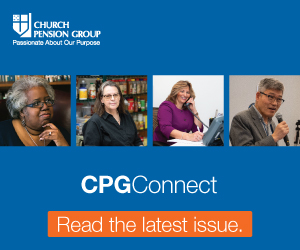By Solange De Santis
Episcopal Journal and Cafe
King Charles III stressed “community, faith and service” at his coronation ceremony May 6, welcoming representatives of many faiths to Westminster Abbey in London in a nod to a modern monarchy that presides over a multi-cultural United Kingdom.
Charles, 74, became sovereign upon the death on Sept. 8, 2022 of his mother, Queen Elizabeth II, who was crowned in June 1953 and was the longest-reigning monarch. The queen consort, Camilla, 75, who married then-Prince Charles in 2005, was crowned queen as part of the coronation ceremony.
Some 2,000 guests attended the coronation, including heads of state and the U.S. first lady, Dr. Jill Biden. The day, which was chilly and rainy, also saw anti-monarchy protests at Trafalgar Square, with several arrests.
The coronation is a legal and profoundly religious process, with its central feature the anointing of the monarch with holy oil. The traditional service, which contains elements more than 1,000 years old, has been held at the abbey since 1066, involving 40 English and British monarchs.
Led by Archbishop of Canterbury Justin Welby, the two-hour Church of England service characterized the nature of kingship as a calling from God, but ruled by law and religious principles.
“To keep you ever mindful of the law and the Gospel of God as the rule for the whole life and government of Christian princes, receive this book, the most valuable thing that this world affords,” said, the Rev. Iain Greenshields, moderator of the General Assembly of the Church of Scotland, in presenting a Bible to the king as part of the ceremony.
The king swore on the Bible “to govern the people with justice and mercy, and to uphold the Anglican Church of England and the Presbyterian Church of Scotland” and, for the first time at a coronation, he prayed for grace to be “a blessing to all … of every faith and belief.”
The anointing, performed behind screens, took place with oil consecrated in Jerusalem by the Patriarch of Jerusalem and the Anglican Archbishop. “This demonstrates the deep historic link between the Coronation, the Bible and the Holy Land. From ancient kings through to the present day, monarchs have been anointed with oil from this sacred place,” Welby said in a statement before the coronation .
At the end of the service, representatives of the Jewish, Hindu, Sikh, Muslim and Buddhist faiths responded, “Your Majesty, as neighbors in faith, we acknowledge the value of public service. We unite with people of all faiths and beliefs in thanksgiving, and in service with you for the common good.”
Orthodox Christian and Roman Catholic leaders also participated. Charles’ coronation was the first one to include Catholic clergy since the Protestant Reformation in the 16th century.
Hundreds of volunteers from the king’s charities attended the ceremony and voluntarism was stressed with a post-coronation event on May 8 called “The Big Help Out,” encouraging people to become involved in local non-profits. The king is the patron of dozens of charities, including the Prince’s Trust, which he started with his Navy severance pay of about £7,000 in 1976.
The service also contained the legal requirement that Charles vow to “cause law and justice, in mercy, to be executed in all [his] judgements … maintain the Laws of God and the true profession of the Gospel … and maintain in the United Kingdom the Protestant reformed religion established by law.”
Among the coronation elements were:
- Female Anglican clergy and bishops participated for the first time since the church permitted the ordination of women in 1992,
- Charles, an enthusiatic arts patron, commissioned 12 pieces of music for the coronation from composers including Paul Mealor, Andrew Lloyd Webber, Debbie Wiseman and the gospel Ascension Choir,
- Traditional music included “Zadok the Priest” by George Frederic Handel, performed at coronations since the early 18th century,
- Charles also requested Greek Orthodox music to be played in honour of his late father, Prince Phillip, who was born in Corfu and was a prince of Greece,
- Soloists included baritone Roderick Williams, South African soprano Pretty Yende and Welsh bass-baritone Bryn Terfel,
- The languages of the United Kingdom – English, Welsh, Irish Gaelic and Scots Gaelic – were represented in the prayers.
- Charles was the first monarch to pray aloud at his coronation, writing a prayer inspired by the book of Galatians.
The coronation concluded with working members of the Royal Family greeting, from the balcony of Buckingham Palace, crowds of well-wishers below.


